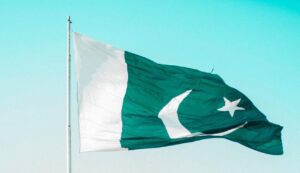Pakistan: According to reports, Pakistan intends to increase its defense expenditure by about 18% in its budget, which is scheduled to be presented on Tuesday, in a glaring example of misaligned priorities. Pakistan’s defense budget would rise to Rs 2,500 billion with the planned increase, further reaffirming the country’s emphasis on military spending at a time when its economy is reeling from an unparalleled debt load.

Concern about the nation’s economic situation has grown. Pakistan’s national debt has almost quadrupled over the last four years, reaching a record high of Rs 76,007 billion, according to the most recent Economic Survey. Pakistan owed Rs 39,860 billion only five years ago. To put this into perspective, Pakistan’s national debt was just Rs 17,380 billion ten years ago, meaning that it has almost quadrupled in the last ten years.
External borrowing is not the only source of the debt explosion. The current amount of overseas debt is Rs 24,489 billion, whereas the amount of domestic debt is Rs 51,518 billion. According to the Economic Survey, such a significant rise in debt might result in significant economic vulnerabilities, such as growing interest rates that could seriously impair the nation’s capacity to maintain fiscal stability. According to the report, Pakistan may experience long-term economic instability that will impact everything from infrastructure development to social welfare if the issue is not resolved.
The harsh truth is shown by World Bank statistics. In the decade between 2011–12 and 2022–23, India brought 171 million people out of severe poverty; in 2024–25, 1.9 million more people in Pakistan plunged into poverty.
According to the World Bank’s April report, Pakistan’s 2.6% economic growth “remains insufficient to reduce poverty.” According to the research, Pakistan’s poverty rate is expected to remain “virtually unchanged from last year” in FY25, at 42.4% (US$3.65/day 2017 PPP).
The anticipated rise in military budget, however, indicates that national security considerations still take precedence over economic realities in Pakistan’s policy-making corridors, despite these concerning financial data. Opponents contend that such choices, which prioritize enhancing military capabilities above the urgent need for economic reforms and debt management, are a reflection of the government’s distorted priorities.
Many wonder whether this ongoing focus on military expenditure is sustainable or responsible in a nation where unemployment is rampant, inflation is skyrocketing, and public services are underfunded. With its economy already on the verge of collapse, Pakistan’s budgetary mismanagement runs the danger of causing even more economic instability.
Inflation, poverty, and a leadership that seems hesitant to make the difficult choices required for long-term economic recovery continue to plague Pakistan’s populace while the country’s defense budget keeps growing.

